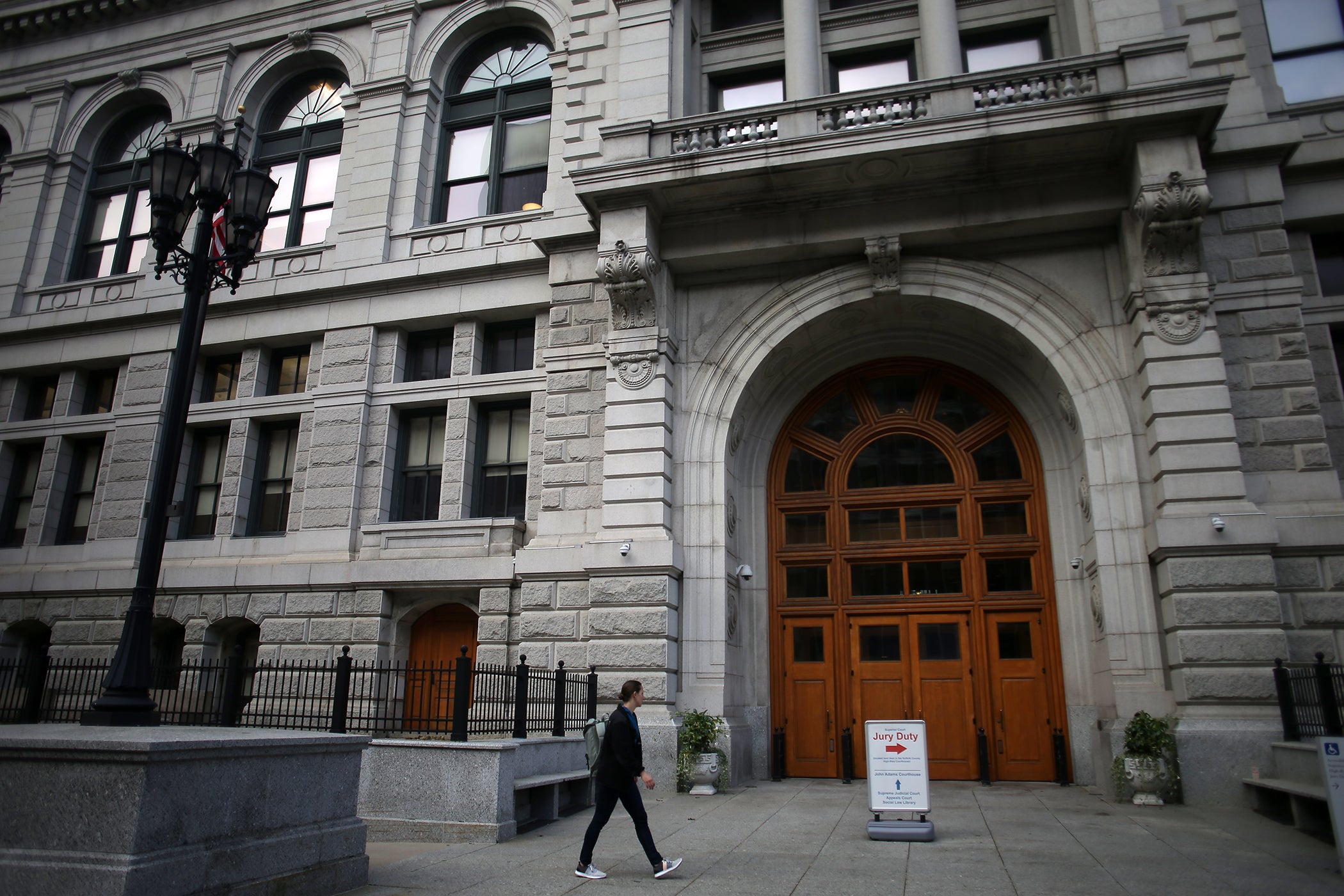State Supreme Court Rules: Independent Prostitution Ads Aren't Sex Trafficking

The state's top court decided on Friday that replying to ads for online prostitution does not qualify as human trafficking.
The Massachusetts Supreme Judicial Court issued a unified ruling based on a 2021 undercover operation conducted by the State Police. The police placed ads portraying an adult woman offering sexual services, leading to scheduled meetings with five individuals who replied, as stated in the document. court ruling .
According to the ruling, the ad indicated that the service provider offered sexual favors independently and included a "legal disclaimer" stating that she had the right not to make any commitments at her sole discretion.
Brendan Garafalo, Brian Dick, Eric VanRiper, James Bi, and Viet Nguyen were all apprehended during the sting operation. Court documents indicate that the charges against Dick were dropped following his death in January 2024.
Two months after the sting operation was conducted, a grand jury out of Plymouth County Superior Court indicted each defendant on charges of human trafficking for sexual servitude and engaging in sexual conduct for a fee, according to the ruling. The defendants filed motions to dismiss the trafficking charges and argued that the facts did not constitute probable cause.
A judge from the Superior Court granted the defendants' requests as the individual claimed to be a sex worker but turned out to be an undercover law enforcement agent. Thus, the accused did not try to traffic "another person." Although the Appeals Court disagreed with the rationale of the Superior Court, it still supported the decision to dismiss the human trafficking charges.
Following the Commonwealth's request for additional scrutiny of the case, the Supreme Judicial Court likewise affirmed the decision of the lower court dismissing the trafficking charges, according to the ruling.
Nothing in the phone conversations or text exchanges between the defendants and the sex worker indicates an attempt by them to lure, attract, seduce, or convince her into engaging in commercial sex acts. Instead, during these communications, they chose sexual activities from a list she provided," noted Justice Dalila Argaez Wendlandt in her decision. "Following this, both defendants agreed to the conditions—price, duration, and place—as specified by what was claimed to be the sex worker. This subsequent agreement to the terms set forth by the sex worker does not reasonably imply actions intended to coax or enlist her services.
Since the defendants were not trying to participate in sexual activities with a sex worker who had been trafficked, and because it was clearly mentioned that the sex worker was working independently, their behavior did not meet the criteria for human trafficking, according to the decision.
The court ruled that the sex trafficking law aims to target "those who supply and buy individuals involved in such operations" instead of clients responding to ads posted by individual sex workers. According to the decision, the actions of the defendants were already prohibited under the sex-for-money statute and had been subject to enhanced penalties since 2011.
Because of the vagueness in the wording of the sex trafficking law, the defendants couldn't be charged under it and thus received "the advantage of this unclear language," according to the court.
“After a four-year fight, in four different courts, with a five-year sentence hanging over their heads, it’s nice for our clients to have some closure and put this behind them,” Patrick J. Noonan, lead counsel for the accused, told The Boston Globe .
Following the court’s ruling, the case was returned to the Superior Court for further proceedings on the other indictments.
Sign up for the Today newsletter
Get everything you need to know to start your day, delivered right to your inbox every morning.
The post Paying for sex through independent prostitution ads is not sex trafficking, state’s highest court rules appeared first on News in A Day .

No comments